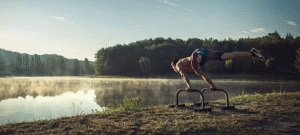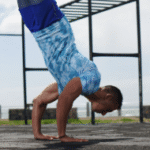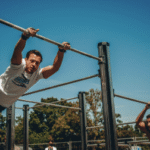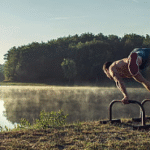Preparing for Your Initial Consultation with a Calisthenics Coach
Preparing for your initial consultation with a potential calisthenics coach is a crucial step in finding the right professional to guide your fitness journey. Being well prepared will help you make the most of this meeting, ask pertinent questions, and determine if the coach is a good fit for your goals and personality.
Introduction
The initial consultation with a calisthenics coach is much more than a casual chat. It is a two way interview where you assess the coach’s suitability, and they assess your needs and goals. Proper preparation allows you to present yourself clearly, ask targeted questions, and ultimately make an informed decision about whether to move forward with their services.
Why Preparation Matters
When you come to a consultation prepared, you demonstrate seriousness about your goals. It allows the coach to get a clearer picture of your needs more quickly, leading to a more productive discussion. For you, it ensures you gather all the necessary information to compare coaches, understand their approach, and feel confident in your hiring decision.
Step One: Clearly Define Your Calisthenics Goals
Before you even speak to a coach, spend some time reflecting on what you want to achieve through calisthenics. Be as specific as possible. Instead of just saying “I want to get stronger,” think about:
Specific Skills: Do you want to achieve a freestanding handstand, a muscle up, a front lever, or improve your pull up numbers?
Strength Objectives: Are you aiming to increase overall bodyweight strength, build muscle, or improve endurance for certain movements?
Physique or Health Goals: Is weight loss, improved body composition, or enhanced mobility a primary driver?
Timeline: Do you have any short term goals (e.g., within 3 to 6 months) and long term aspirations (e.g., within a year or more)?
Motivation: Why are these particular goals important to you? Understanding your “why” can be helpful for both you and the coach.
It is a good idea to write these goals down.
Step Two: Document Your Exercise and Health Background
The coach will need to understand your starting point. Having this information organized will be very helpful:
Current Fitness Level: Honestly assess where you are now. For example, how many push ups or pull ups (if any) can you currently do? Can you hold a plank, and for how long? Have you tried handstand progressions before?
Past Exercise Experience: What types of exercise or sports have you done in the past? What did you enjoy, what did you dislike, and what were your experiences with consistency or results?
Injury History: This is absolutely crucial for safety. List any past or current injuries, surgeries, chronic pain conditions (especially in wrists, elbows, shoulders, back, or knees), or physical limitations.
Medical Conditions: Note any relevant health conditions such as cardiovascular issues, metabolic disorders, or any other condition that might affect your ability to train. List any medications you are currently taking.
Step Three: Consider Your Logistical and Practical Needs
Think about the practical aspects of working with a coach:
Availability: What days of the week and times of day are you realistically available for training sessions? How many sessions per week are you considering?
Budget: While you might not discuss exact figures until the coach presents their pricing, have a general idea of what you are willing and able to invest in coaching per session or per month.
Training Location Preference: Where do you envision training? At your home, a local park, or a specific gym or studio the coach uses? If you plan on online coaching or home sessions, what equipment, if any, do you currently have access to (e.g., pull up bar, rings, parallettes)?
Step Four: Do Your Homework on the Coach
If you have not already done so extensively, review the coach’s website, social media presence (Instagram, YouTube, Facebook), and any available client testimonials or reviews before the consultation. This will give you a preliminary sense of their style, expertise, and client results, allowing you to prepare more targeted and informed questions.
Step Five: Prepare a List of Insightful Questions
Having a list of questions ready ensures you cover all your bases. Consider categories such as:
Experience and Expertise: Ask about their specific experience coaching clients with goals similar to yours and at your current fitness level. Inquire about their own calisthenics background and qualifications.
Coaching Philosophy and Methodology: Ask how they approach teaching calisthenics, their methods for progressing clients safely, how they structure programs, and their philosophy on aspects like form, intensity, and recovery.
Safety and Injury Prevention: How do they ensure client safety, especially with complex movements? How do they handle pre existing limitations?
Session Structure and Programming: What does a typical session look like? How is programming tailored? How is progress tracked?
Policies and Practicalities: Inquire about their session rates, package options, payment policies, cancellation and rescheduling policies, and if they carry professional liability insurance.
Step Six: Technical and Environmental Setup (For Online Consultations)
If your consultation is virtual:
Ensure you have a stable internet connection.
Test your camera and microphone beforehand.
Choose a quiet, private, and well lit space where you will not be interrupted.
Have a pen and paper, or a digital device, ready for taking notes.
Step Seven: Adopt the Right Mindset
Approach the consultation as a serious, professional meeting, but also an opportunity to see if there is a good personal connection.
Be open and honest about your goals, struggles, and concerns.
Be prepared to listen actively to what the coach has to say.
Remember that it is a two way interview. You are assessing them, and they are also assessing if they can genuinely help you and if you would be a good fit for their coaching style.
What to Bring or Have Ready for the Consultation
To summarize, have these items accessible:
Your written list of specific goals.
Notes on your health, injury, and exercise history.
Your list of prepared questions.
A way to take notes (pen/paper or digital).
A receptive and inquisitive attitude.
Conclusion
Thorough preparation for your initial consultation with a calisthenics coach is a key step towards finding a great match and setting yourself up for success. By clearly understanding your own goals and history, researching the coach, and preparing insightful questions, you can make the most of this important meeting. This diligence will help you choose a coach in the USA who can safely and effectively guide you on your calisthenics journey.

Preparing for Your Initial Consultation with a Calisthenics Coach
Route
Calisthenics Gym Houston Functional Bodyweight Training
Secondary phone: (346) 483-3195
Email: info@calisthenicsclubhouston.com
URL: https://calisthenicsclubhouston.com/
Monday 6:00 AM - 7:00 PM Tuesday 6:00 AM - 7:00 PM Wednesday 6:00 AM - 7:00 PM Thursday 6:00 AM - 7:00 PM Friday 12:00 PM - 6:30 PM Saturday 9:45 AM - 12:00 PM Sunday 3:00 PM - 5:00 PM





